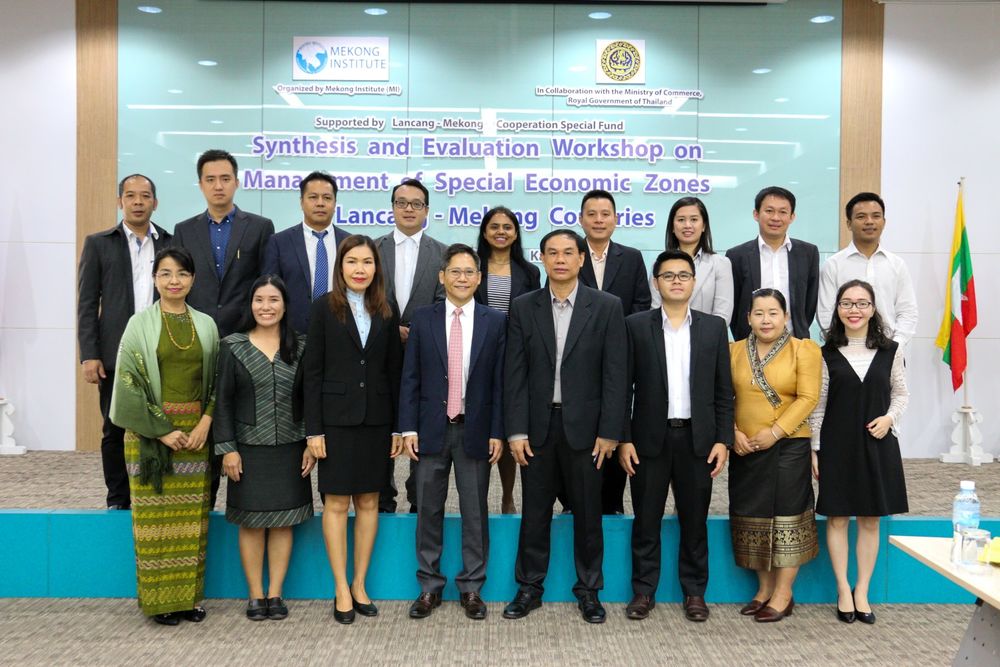Mekong Institute (MI) organized a synthesis and evaluation workshop (S&E) on February 12-13, 2019 at its residential training center in Khon Kaen, Thailand. The S&E workshop capped off the modular training program on Management of Special Economic Zones in Lancang-Mekong Countries, which ran from September 2018 to February 2019.
The S&E workshop was attended by participants representing public and private sectors, including ministries of commerce, finance, planning and investment, foreign affairs, special economic zone (SEZ) policy development and monitoring agencies, and SEZ developers from Lao PDR, Myanmar, Thailand, and Vietnam.
In his opening remarks, Dr. Watcharas Leelawath, Executive Director of MI, underlined the importance of SEZs in the Lancang-Mekong region in boosting economic development, attracting foreign direct investment, generating benefits to local stakeholders, and achieving inclusive and equitable growth. Dr. Leelawath also pointed out that mechanisms for collaboration and cooperation among SEZs in Lancang-Mekong countries should be established for further labor skills improvement and economic development in the region.
The S&E workshop aimed at assessing participant learning by obtaining feedback on the modular training program and reviewing results of action plan implementation including best practices and outcomes. Over 300 beneficiaries and stakeholders in Lao PDR, Myanmar, Thailand, and Vietnam gained knowledge and skills through national workshops, seminars, and knowledge sharing forums carried out by the training participants. The workshop served as a platform for participants to further discuss the importance of cross border economic cooperation zones, management of SEZs and cross border economic zones (CBEZs) focusing on global value chains and new disruptive technology, and policy framework for improving SEZs. In addition, the participants also discussed the following issues:
- i. Key related information on SEZs in the Lancang-Mekong countries for developing an online SEZ portal including legislations, maps, trade and investment data, incentives provision for investors, investment costs, infrastructure, labor resource, public services, one-stop services, and other services.
- ii. Assessment of the modular training cycle against the REESI principle (Relevance, Effectiveness, Efficiency, Sustainability, and Institutional Development) in gauging the impact of the training program.
The modular training program is part of a three-year project on Joint Development of Cross Border Economic Zones implemented by MI in collaboration with the Ministry of Commerce, Royal Government of Thailand and supported by the Lancang-Mekong Special Cooperation Fund.








